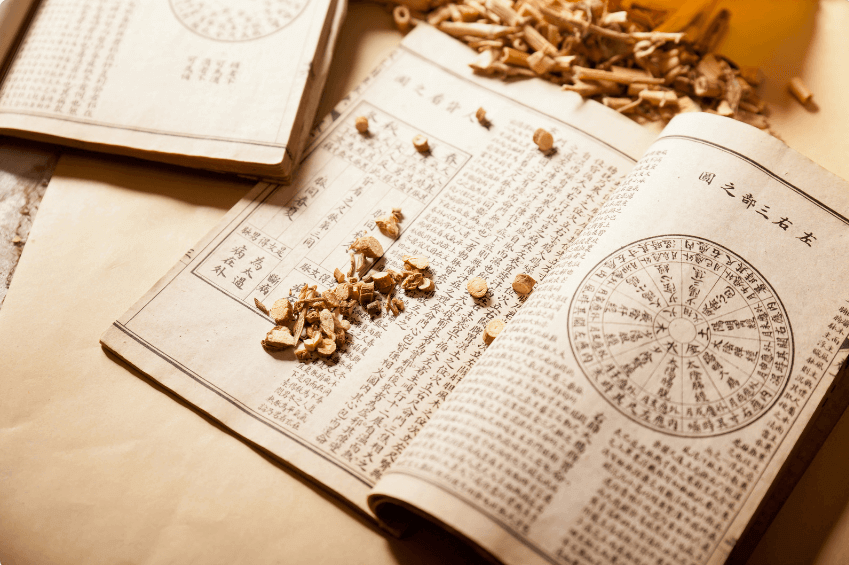
Traditional Chinese Medicine: Treating Internal Heat
Share
Traditional Chinese Medicine (TCM) is a holistic approach to health that has been practiced for thousands of years. It encompasses a wide range of therapies, including herbal medicine, acupuncture, dietary therapy, and exercises like Tai Chi and Qigong. One of the fundamental concepts in TCM is the balance of Yin and Yang, and the smooth flow of Qi (vital energy) throughout the body. An imbalance in these elements can lead to various health issues, including a condition known as "internal heat."
Understanding Internal Heat
In TCM, internal heat is considered an imbalance where there is an excess of Yang energy or insufficient Yin, leading to symptoms of overheating within the body. This condition can be caused by various factors such as diet, emotional stress, environmental influences, and lifestyle choices.
Common Causes of Internal Heat
- Diet: Consuming spicy, greasy, or fried foods, such as hot peppers, fried chicken, and heavy curries, as well as excessive alcohol or caffeine, can contribute to internal heat.
- Emotional Stress: Emotions such as anger, frustration, and anxiety can generate heat within the body, similar to how you might feel flushed or hot-headed during a stressful argument.
- Environment: Prolonged exposure to hot weather or heated environments, like spending long hours in the sun or working in a kitchen, can exacerbate internal heat.
- Lifestyle: Irregular sleeping patterns, overexertion from intense workouts without adequate rest, and lack of sufficient relaxation time can lead to an accumulation of heat.
Symptoms of Internal Heat
Symptoms of internal heat can vary depending on the organs affected, but common signs include:
- Thirst and dry mouth: Feeling constantly thirsty and having a parched mouth.
- Red face and eyes: Flushed cheeks and red, bloodshot eyes.
- Irritability and restlessness: Feeling unusually irritable and unable to relax.
- Insomnia: Difficulty falling asleep or staying asleep.
- Dark yellow urine: Noticing that your urine is darker in color than usual.
- Constipation: Struggling with infrequent or difficult bowel movements.
- Skin issues like acne or rashes: Developing pimples, hives, or red, itchy skin.
- Sore throat: Experiencing a persistent scratchy or painful throat.
TCM Approaches to Treating Internal Heat
Herbal Medicine

Herbal medicine is one of the primary methods used in TCM to treat internal heat. Specific herbs have cooling properties that help to dispel heat and restore balance. Some commonly used herbs include:
Huang Lian (Coptis Rhizome): Known for its potent heat-clearing and detoxifying properties, often used to treat infections and digestive issues.
Zhi Zi (Gardenia Fruit): Used to clear heat and calm irritability, beneficial for symptoms like restlessness and anxiety.
Sheng Di Huang (Rehmannia Root): Helps to nourish Yin and reduce heat, often used in conditions like diabetes and fever.
Bai Shao (White Peony Root): Balances liver heat and alleviates pain, commonly used for menstrual cramps and muscle spasms.
Acupuncture

Acupuncture involves the insertion of fine needles into specific points on the body to regulate the flow of Qi and balance Yin and Yang. For internal heat, acupuncture points that clear heat and promote cooling are selected. Some effective points include:
LI11 (Quchi): Clears heat and cools the blood, useful for skin conditions and fevers.
ST44 (Neiting): Reduces stomach heat and alleviates digestive symptoms like heartburn and indigestion.
LV2 (Xingjian): Clears liver heat and calms the mind, helpful for headaches and stress.
HT8 (Shaofu): Clears heart heat and reduces anxiety, often used for palpitations and restlessness.
Dietary Therapy
Diet plays a crucial role in managing internal heat. TCM dietary therapy recommends consuming foods with cooling properties to counteract the excess heat. Some beneficial foods include:
Fruits: Watermelon, pears, apples, and melons, which are hydrating and cooling.
Vegetables: Cucumbers, celery, spinach, and bitter melon, known for their cooling effects.
Herbal Teas: Chrysanthemum tea, mint tea, and green tea, which help to clear heat and soothe the body.
Other Foods: Mung beans, tofu, and barley, which can help to cool the body and reduce heat.
Avoiding spicy, greasy, and fried foods, as well as alcohol and caffeine, is also essential to prevent exacerbating internal heat.
Lifestyle Adjustments
In addition to dietary changes, certain lifestyle adjustments can help manage internal heat:
Stress Management: Practices such as meditation, Tai Chi, and Qigong can help reduce emotional stress and prevent heat accumulation.
Adequate Rest: Ensuring regular sleep patterns and sufficient rest helps maintain Yin-Yang balance.
Hydration: Drinking plenty of water to keep the body cool and hydrated.
Conclusion
Traditional Chinese Medicine offers a comprehensive approach to treating internal heat by addressing its root causes and restoring balance within the body. Through the use of herbal medicine, acupuncture, dietary therapy, and lifestyle adjustments, TCM provides effective and natural ways to cool the body and alleviate symptoms of internal heat. By embracing these ancient practices, individuals can achieve better health and harmony in their lives.
